Tag: Sean Kippin
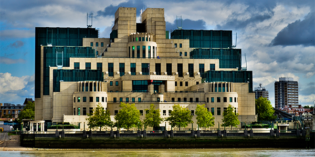
How accountable are the UK’s security and intelligence services to Parliament?
For our 2018 Audit of UK Democracy, Sean Kippin and the Democratic Audit team assess the ways in which the UK’s four main security services are scrutinised, to ensure that they are operating legally and in the public interest. For matters that must be kept secret, ‘compromise’ forms of scrutiny have now been developed in Parliament. But how effectively or independently do they work?
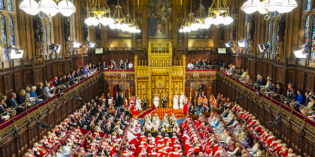
How undemocratic is the House of Lords?
For our 2018 Audit of UK Democracy, Sonali Campion, Sean Kippin and the Democratic Audit team examine how the UK’s deeply controversial current second chamber, the House of Lords, matches up to the criteria for liberal democracies with bi-cameral legislatures. Now an almost-all appointed Chamber, the Lords has achieved recent prominence on Brexit and tax credits by exerting some bipartisan influence moderating Commons proposals. However, its members remain creatures of patronage, and wholly unaccountable to the UK’s citizens. All parties except the Tories now support its replacement by an elected Senate. Increasingly only the Tories and Liberal Democrats are still appointing any peers – although there are also a fifth of peers who are ‘crossbenchers’, not taking a party whip.

Book Review | How Democracy Ends by David Runciman
Is democracy in crisis? In How Democracy Ends, David Runciman offers a compelling and convincing account of the state of democracy today, separating clear threats from alarmism in an accessible, well-written and thoughtful book. Sean Kippin recommends this to anyone seeking to understand our current predicament and the future paths for democracy – if any – ahead.
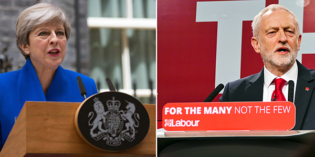
How democratic are the UK’s political parties and party system?
For our 2018 Audit of UK Democracy, Patrick Dunleavy and Sean Kippin examine how democratic the UK’s party system and political parties are. Parties often attract criticism from those outside their ranks, but they have multiple, complex roles to play in any liberal democratic society. The UK’s system has many strengths, but also key weaknesses, where meaningful reform could realistically take place.
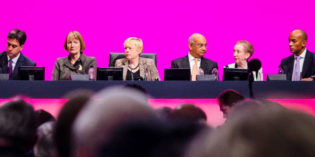
Many Labour MPs have still to unequivocally reject ‘roll-out’ neoliberalism
Chuka Umunna recently defended the last Labour government against a left-wing critique that its modus operandi was fundamentally neoliberal. Ewan Gibbs and Sean Kippin argue this does not consider the nature of neoliberalism, particularly the distinction between its ‘roll-back’ and ‘roll-out’ variants. They argue that New Labour’s approach was indeed of the latter type.
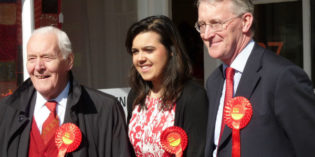
Why Labour can’t get a grip: the power v principles conundrum
Labour’s future direction is at stake. Its leader has the backing of a large part of the membership, yet appears to have no prospect of forming a government in order to deliver upon his vision. Although the trigger was the (tokenistic) addition of Jeremy Corbyn on the ballot paper in 2015, the crisis is caused […]

Interview: Alon Peled on the Public Sector Information Exchange, avoiding disasters, and big data
Alon Peled is the man behind the Public Sector Information Exchange, a new digital tool which will allow citizens to access state agency data and compare it across different countries and continents. Last year, Sean Kippin spoke to Alon about both this project specifically and the potential for big data more generally. Part 1 of […]

How democratically accountable are the UK’s security and intelligence services?
As part of the 2017 Audit of UK Democracy, Sean Kippin and the DA team assess the ways in which the UK’s four main security services are scrutinised, to ensure that they are operating legally and in the public interest. For matters that must be kept secret, ‘compromise’ forms of scrutiny have now been developed in Parliament. […]
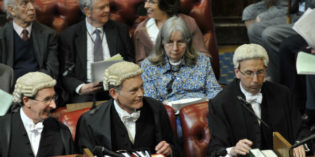
How democratic is the UK’s House of Lords, and how could it be reformed?
As part of the 2017 Audit of UK Democracy, Sonali Campion, Sean Kippin and the DA team examine how the UK’s deeply controversial current second chamber, the House of Lords, matches up to the criteria for liberal democracies with bi-cameral legislatures. Now an almost-all appointed Chamber, the House of Lords has had some prominent or more bipartisan influence on moderating Commons […]

How democratic are the UK’s political parties and party system?
As part of the 2017 Audit of UK Democracy, Sean Kippin, Patrick Dunleavy and the DA team examine how democratic the UK’s party system and political parties are. Parties often attract criticism from those outside their ranks, but they have multiple, complex roles to play in any liberal democratic society. The UK’s system has many […]


 Democratic Audit's core funding is provided by the Joseph Rowntree Charitable Trust. Additional funding is provided by the London School of Economics.
Democratic Audit's core funding is provided by the Joseph Rowntree Charitable Trust. Additional funding is provided by the London School of Economics.